The crucial role of local experts fighting Covid-19
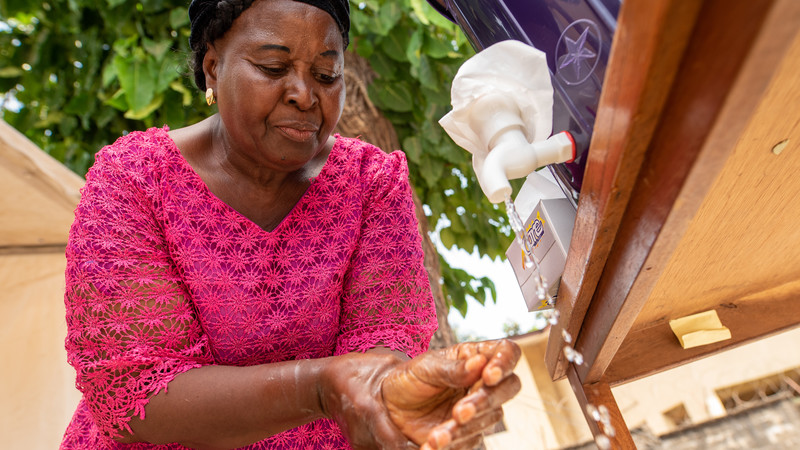
Kayode Akintola is CAFOD’s country representative in Sierra Leone and Liberia. He tells us how volunteers fought on the front line in the Ebola crisis and how these countries are preparing for Covid-19.
Life in Sierra Leone
Sierra Leone is a small country in West Africa with a population of a little over seven million. It is one of the poorest countries in the world. Most of the people, over 60%, live in abject poverty.
It’s a country that has gone through a lot – civil war, the cholera outbreak, mudslides, seasonal flooding. It’s a country that has faced every kind of disaster, both man-made and natural.
Responding to Ebola
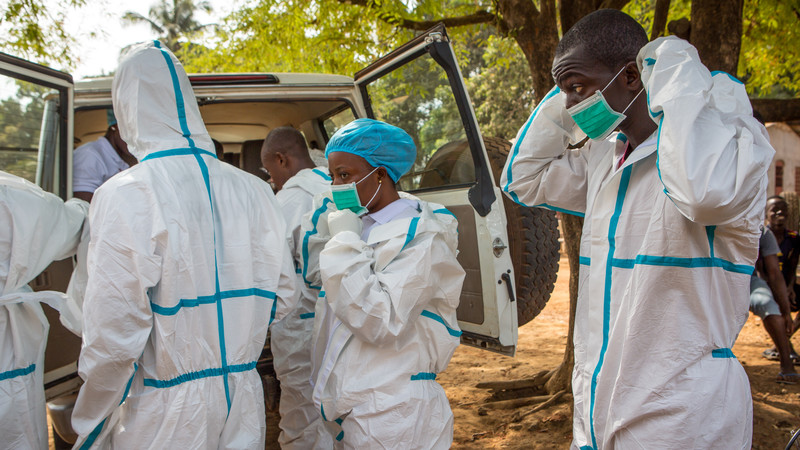
Ebola was an epidemic here. It decimated the economy, social systems – almost every aspect of life was devastated by the Ebola outbreak. The first thing we did was social mobilisation and to use faith leaders to do some awareness raising. The Ebola outbreak called for change to many of our social practices, some of them age-old practices like our burial practices.
Part of the reason our work was a success was because we brought leaders on board – community leaders of all faiths – and we gave them training. The community had trust and respect. They trusted these leaders, so they were able to go where others were afraid of going. It is because of these faith leaders who assisted us that we were able to respond where other organisations could not get to.
Read more about CAFOD’s response to the Ebola virus in Sierra Leone
Has life gone back to normal?
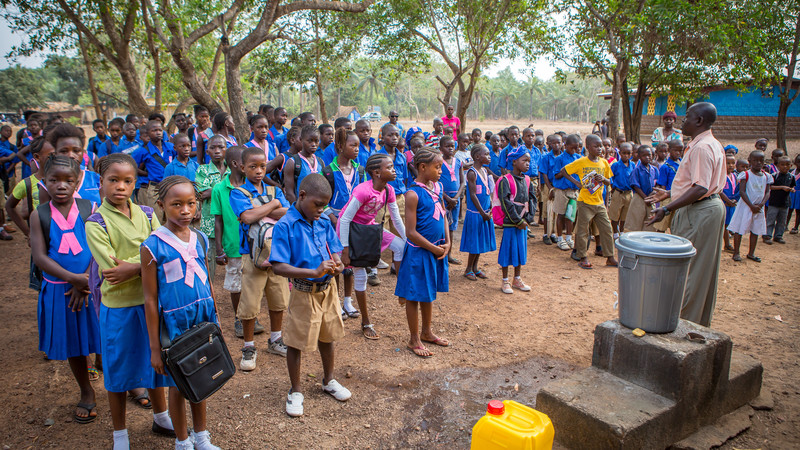
Ultimately, when Sierra Leone was finally declared Ebola-free in November 2016 people breathed a sigh of relief and went out to celebrate. It was very relieving to know it was all over.
But did life go back to normal? It depends what you define as normal. People have to pick up where they are and continue, because there is a saying ‘when there is life, there is hope’. It might be very challenging but we have to move on.
Our Caritas local experts and the faith leaders were always in the communities with the people. They are part of the communities, they have gained their trust and respect.
The threat of COVID-19
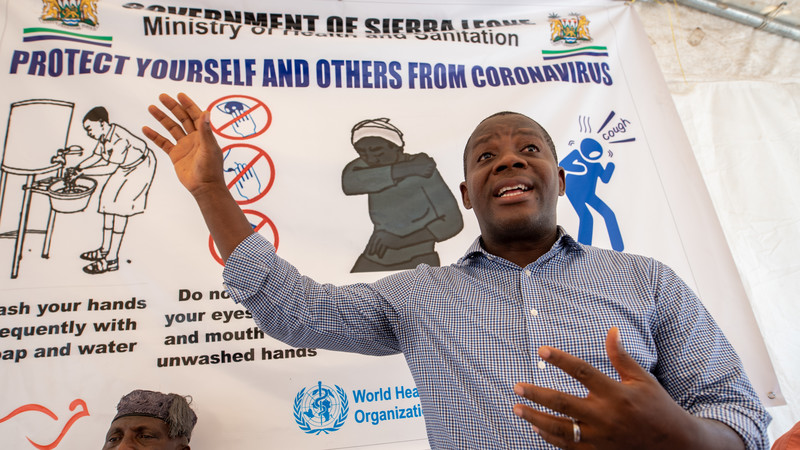
We had our first case of coronavirus in the last week of March. The number is now increasing daily. Originally we thought this was just in the capital city, Freetown, but we are beginning to see this now filter into the other communities, and I fear we are already having community transmission.
The health system is quite fragile and weak. I don’t want to sound alarmist, but we have one of the worst health systems in the world. My fear is that this country may be going back to the days of Ebola.
When we had Ebola, we had to focus on Ebola. People with health issues like malaria or stomach issues could not get treatment, or refused to go to health facilities for treatment, for fear of contracting Ebola. We don’t have statistics, but I am sure many people lost their lives not because of Ebola, just because there was no care – every effort was geared to that response.
Sign our petition to protect the most vulnerable from coronavirus
The reality in Sierra Leone
We have heard the health officials talking about social distancing – but you can imagine how difficult it is to distance when the houses are so cramped together. In slums you could have ten people living together in one room, in a zinc shelter. How practical is social distancing then?
The reality is people must work to eat in this country. Many people do not have any savings. They must go out daily to work to get something to eat with their family. They live one day after another.
Hand washing in itself is very challenging. Many houses have no running tap or water. Not that it is not going to happen, but these are some of the realities that people face.
Support local experts responding to coronavirus
How is CAFOD responding to Covid-19?
As CAFOD we have started to mobilise faith leaders across the entire country, and to provide them with some basic messaging on preventive things that people need to know and practise. We had a training session with faith leaders from every district, because we knew it was not a matter of if we would get coronavirus – it was a matter of when.
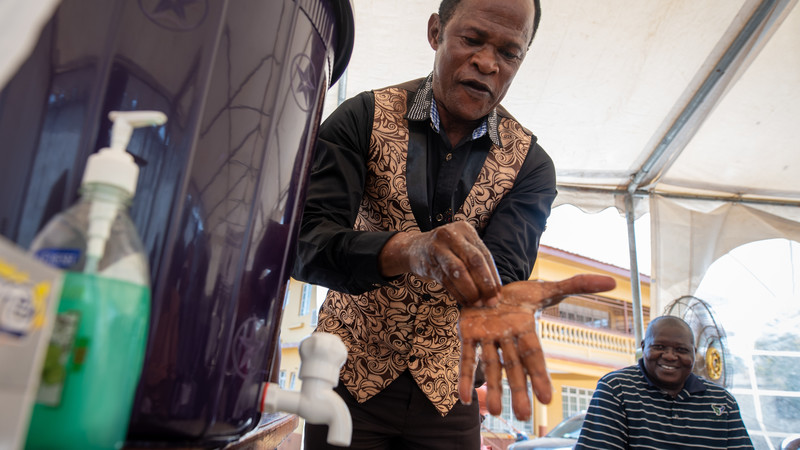
We have radio jingles going on community radio stations, and we recently started a TV show where we have one Christian and one Muslim faith leader go onto the show and talk about the information. We are using faith leaders to counteract the false information, because that can spread faster than the real information, and we are making sure people get the real information. Trust is so important.
“These are very worrying times, but with the community involved we refuse to be overwhelmed by the odds that are against us. We defeated Ebola, and we know that by the grace of God we are going to defeat Covid-19.”
Kayode Akintola, CAFOD’s representative in Sierra Leone and Liberia
I know this is a very worrying time for everyone around the world, including in the UK, but here in Sierra Leone I am sorry to say that, we really do not have the health system to support this kind of pandemic.
People are saying they have two choices – they go out to work and die of Covid-19, or they stay at home and die of hunger.
Join us in prayer in this time of coronavirus
My message to CAFOD supporters
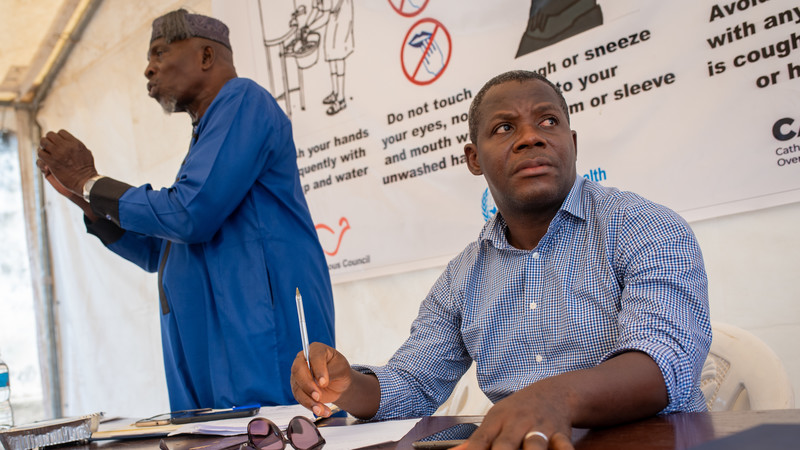
We need your support and prayers. We know CAFOD volunteers and supporters have never failed to work alongside us in our times of greatest need. We know during the civil war, Ebola, cholera, mudslides, flooding, CAFOD supporters have always worked alongside us. Your prayers and donations keep hope alive, and it propels us to do all we can to protect communities from the spread of this pandemic.
Please continue to pray for us, continue to help us in whatever little way you can with those donations. Nothing at this time is going to be too small. Schools are closed, people are at home, but with no food. Mothers are at home, but with no food.
We will not cease to thank you, from deep within our hearts, for all that you are doing – not just in Sierra Leone, but every part of the world that CAFOD works in. I am sure I am echoing everyone CAFOD works with in the world that they are glad that you are holding them up in your thoughts and prayers, and with your donations to help them.